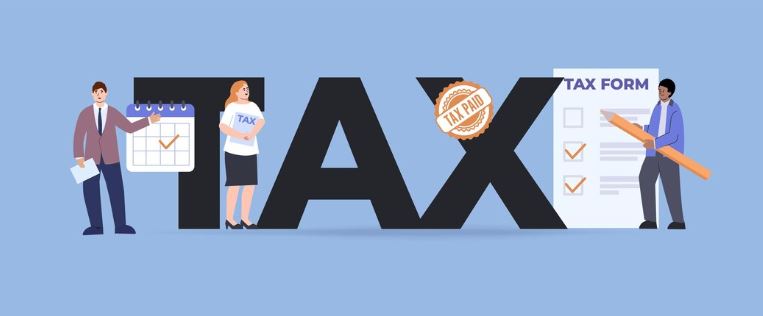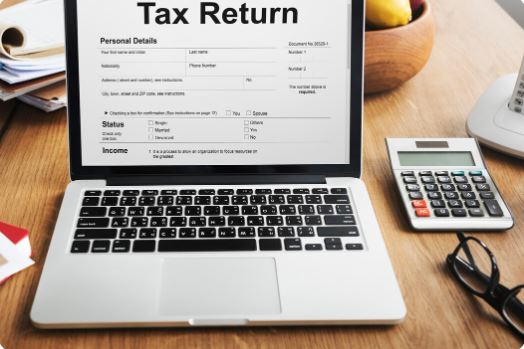Corporate tax in the UAE marks a transformative shift in the nation’s fiscal landscape. Introduced through Federal Decree-Law No. 47 of 2022 and effective from June 1, 2023, this direct tax on business profits applies at competitive rates of 0% on taxable income up to AED 375,000 and 9% on income exceeding this threshold. Understanding corporate tax is no longer optional; it’s essential for every business operating in the UAE.
What is Corporate Tax and Key Rates
Corporate Tax (CT) is a direct tax levied on the net profits of businesses operating in the UAE. Unlike VAT, which applies to transactions, corporate tax targets your actual business income after deducting allowable expenses.
Corporate Tax Rates:
- 0% tax rate: Taxable income up to AED 375,000
- 9% tax rate: Taxable income exceeding AED 375,000
- 0% for Qualifying Free Zone Persons: On qualifying income only
Example Calculation:
If your taxable income is AED 500,000:
- First AED 375,000: 0% = AED 0
- Remaining AED 125,000: 9% = AED 11,250
- Total CT = AED 11,250
This progressive structure supports small businesses while maintaining the UAE’s position as one of the most tax-competitive jurisdictions globally. The CT law applies to UAE resident companies, free zone entities, and foreign companies with a permanent establishment in the UAE.
Who Needs to Register and Filing Requirements

Registration Requirements:
All UAE businesses must register for corporate tax through the EmaraTax portal, including:
- UAE mainland companies
- Free zone entities (with specific conditions)
- Foreign companies with a UAE permanent establishment
- Individuals conducting licensed business activities
Key Exemptions:
- Government entities and government-controlled bodies
- Qualifying public benefit organizations
- Extractive businesses (subject to Emirate-level taxation)
- Investment funds meeting specific criteria
- Qualifying Free Zone Persons on qualifying income
Filing Deadlines:
- Tax return submission: Within 9 months from your financial year-end
- Tax payment: Due with the return submission
- Record retention: Maintain documents for 7 years
Example:
Financial year ending December 31, 2024 → Tax return due September 30, 2025
Businesses with revenue above AED 50 million must submit audited financial statements with their returns. All filings are electronic through the EmaraTax portal—paper submissions are not accepted.
Accounting & Bookkeeping
Accurate accounting and bookkeeping are the foundation of corporate tax compliance. Since the CT law took effect, maintaining precise financial records has become critical for every UAE business.
The Federal Tax Authority (FTA) requires you to maintain comprehensive records for seven years, including invoices, receipts, bank statements, contracts, and all financial documentation. Your accounting system must track revenue, expenses, assets, and liabilities in accordance with International Financial Reporting Standards (IFRS) or other acceptable accounting standards.
Proper bookkeeping enables you to calculate taxable income accurately, identify allowable deductions, prepare error-free tax returns, and support your position during FTA audits. Whether you manage accounts in-house or outsource to professionals, ensure your practices align with UAE CT requirements from day one.
Corporate Tax Compliance and Audit
Corporate tax compliance extends far beyond annual filing. It requires ongoing attention to regulations, meticulous documentation, and proactive management of your tax position.
Essential Compliance Steps:
Register with the FTA before your deadline to avoid penalties starting from AED 500. File your tax return within nine months of your financial year-end, ensuring all calculations are accurate and supported by proper documentation.
Maintain transfer pricing documentation if you conduct transactions with related parties—these must demonstrate arm’s length pricing. The FTA conducts risk-based audits, requesting detailed financial records, contracts, and supporting documents.
Audit Readiness:
Having organized records, clear audit trails, and documented tax positions significantly reduces compliance risks. Late filing penalties can escalate quickly, and incorrect filings may trigger detailed FTA scrutiny. Consider implementing quarterly internal reviews of your tax position to identify issues before they become problems.
Strong compliance today builds a solid foundation for sustainable business growth and protects against costly penalties tomorrow.
Cloud Accounting and Accounting Software

Digital accounting infrastructure isn’t optional—it’s essential for corporate tax compliance in the UAE. Cloud-based accounting solutions provide the accuracy, accessibility, and automation required to meet FTA standards efficiently.
Why Cloud Accounting Matters:
Modern accounting software offers real-time access to financial data, enabling informed decision-making and continuous tax position monitoring. Automated transaction recording eliminates manual errors and ensures all financial activities are properly documented for the mandatory seven-year retention period.
Leading platforms integrate seamlessly with banking systems, invoicing tools, and the EmaraTax portal, streamlining your entire compliance workflow. They generate audit-ready reports instantly, making FTA audits far less stressful.
Key Features to Look For:
Choose accounting software supporting multi-currency transactions, VAT and CT compliance features, IFRS-compliant reporting, and secure cloud storage with regular backups. Popular solutions for UAE businesses include Zoho Books, QuickBooks, Xero, and SAP.
Investing in robust accounting technology positions your business for seamless compliance as corporate tax regulations evolve.
Digital Taxation
The digital economy has transformed how businesses operate, and the UAE corporate tax applies equally to digital and traditional business activities.
E-commerce businesses, SaaS providers, digital content creators, and online platforms operating in the UAE are fully subject to corporate tax on their taxable income. Whether you sell physical products online, provide cloud services, or operate a digital marketplace, your profits above AED 375,000 are taxed at 9%.
Digital Nexus Considerations:
Foreign digital businesses may establish a taxable presence in the UAE even without a physical office if they meet permanent establishment criteria. This includes having dependent agents, conducting substantial activities through digital platforms, or maintaining a significant digital presence.
The FTA emphasizes digital record-keeping through approved accounting software, making compliance more straightforward for digital businesses. Additionally, the UAE has aligned with the OECD’s digital taxation framework, including implementing the Domestic Minimum Top-up Tax (DMTT) for large multinational enterprises with revenues exceeding EUR 750 million.
As digital business models continue evolving, staying informed about how corporate tax applies to your specific digital activities ensures compliance and prevents unexpected tax liabilities.
Shared CFO Service
Navigating UAE corporate tax requires specialized financial expertise that many SMEs lack internally. Shared CFO services provide C-level financial guidance without the cost of a full-time executive.
A Shared CFO offers strategic tax planning, identifying available reliefs and exemptions while optimizing your overall tax position. They ensure financial statements comply with IFRS standards required for CT purposes and manage cash flow to ensure liquidity when tax payments become due.
Key Value Areas:
For businesses with multiple entities, a Shared CFO advises on tax group registration to consolidate income and losses. They monitor regulatory changes, ensure timely registrations and filings, and maintain documentation required during FTA audits.
Shared CFOs also handle transfer pricing compliance for businesses with related-party transactions, ensuring all arrangements meet arm’s length requirements. They prepare your business for potential audits by organizing records and documenting tax positions clearly.
For growing businesses and startups, Shared CFO services offer the perfect balance between affordability and expert guidance during the critical corporate tax implementation phase.
Tax Consultant and Tax Agent UAE
Partnering with qualified tax consultants or registered tax agents is a strategic investment for corporate tax compliance in the UAE.
What Tax Consultants Provide:
Expert consultants guide you through EmaraTax registration, assess tax residency status, calculate taxable income accurately, and prepare complete tax returns. They offer industry-specific advice for sectors like free zones, real estate, and e-commerce, and represent your business during FTA discussions and audits.
Registered Tax Agents:
Tax agents authorized by the FTA can file returns on your behalf, correspond with the authority, and submit objections and appeals. They stay current on regulatory changes, FTA public clarifications, and evolving compliance requirements.
Selecting the Right Consultant:
Look for consultants with proven UAE corporate tax experience, registration with professional bodies, understanding of your industry, transparent pricing, and ongoing support beyond one-time filings.
Major firms like Deloitte, PwC, EY, and KPMG, along with specialized local consultancies, offer comprehensive corporate tax services. The right tax advisor doesn’t just ensure compliance—they optimize your tax position legally, identify planning opportunities, and provide peace of mind that your tax affairs are properly managed.
Free Zone Corporate Tax Treatment

UAE free zones remain highly competitive under the corporate tax regime through special provisions for Qualifying Free Zone Persons (QFZPs).
Qualifying for 0% Tax:
Free zone entities can achieve 0% corporate tax on qualifying income by maintaining adequate substance in the UAE, conducting only qualifying activities, and complying with all regulatory requirements.
Income Classification:
- Qualifying income (0% tax): Transactions with other free zone entities or customers outside the UAE
- Non-qualifying income (9% tax): Business with UAE mainland entities or excluded activities
Example:
A free zone company earning AED 1,000,000 from exports (qualifying) pays 0% tax. If it earns AED 300,000 from UAE mainland sales (non-qualifying), that portion is taxed at 9% = AED 27,000.
Substance Requirements:
To maintain QFZP status, demonstrate core activities conducted in the UAE, adequate qualified employees, sufficient operating expenditure, and strategic decisions made locally. Without proper substance, you may lose free zone benefits.
Free zones, including DMCC, JAFZA, DIFC, ADGM, RAKEZ, and SAIF Zone, continue offering competitive advantages, but maintaining QFZP status requires active compliance and documentation.
Conclusion
Corporate taxation in the UAE represents both a legal obligation and a strategic opportunity. With competitive rates, generous small business relief, and continued free zone benefits, the UAE maintains its position as a global business hub.
Success in this new landscape requires more than compliance—it demands preparation, proper systems, and expert guidance. From implementing robust accounting infrastructure to understanding registration requirements, from maintaining audit-ready records to optimizing your tax position through available reliefs, every step matters.
By embracing digital accounting solutions, partnering with qualified tax consultants, and staying informed about regulatory developments, businesses can navigate corporate tax confidently. Whether you’re a startup benefiting from the AED 375,000 zero-tax threshold, a free zone entity maintaining QFZP status, or an established mainland company optimizing group structures, proactive tax management builds the foundation for sustainable growth.
The corporate tax journey begins with understanding, continues with implementation, and succeeds through ongoing compliance excellence. Start preparing today to ensure your business thrives in the UAE’s evolving tax landscape.
Need help with CT registration? Contact our experts
Yes, the UAE allows unlimited carry-forward of tax losses. If your business incurs a loss in any tax period, you can offset it against future taxable profits indefinitely—there’s no time limit. However, if your company undergoes significant ownership changes (over 50%), loss carry-forward may be restricted. Currently, loss carry-back is not permitted in the UAE.
Small business relief is available for businesses with annual revenue below AED 3 million. Eligible businesses can opt for simplified compliance procedures, though this relief is optional and comes with specific conditions. Note that this is different from the AED 375,000 threshold for 0% tax—small business relief relates to compliance simplification, not tax rates.
Late filing starts with a minimum penalty of AED 500 and escalates for continued non-compliance. Late tax payments incur both fixed penalties and interest charges on the outstanding amount. Serious violations like tax evasion or providing false information can result in penalties up to 300% of the tax due, plus potential legal consequences.
Corporate tax is a direct tax on business profits (9% on income above AED 375,000), while VAT is an indirect consumption tax (5% on most goods and services). You pay corporate tax annually based on net profit; you collect VAT from customers and remit it quarterly. Both require separate registrations and different compliance procedures.
A tax group allows qualifying UAE companies under at least 95% common ownership to file one consolidated corporate tax return instead of separate returns. This simplifies compliance, allows loss offsetting between group members, and eliminates transfer pricing requirements for qualifying intra-group transactions. All members must have the same financial year-end.




